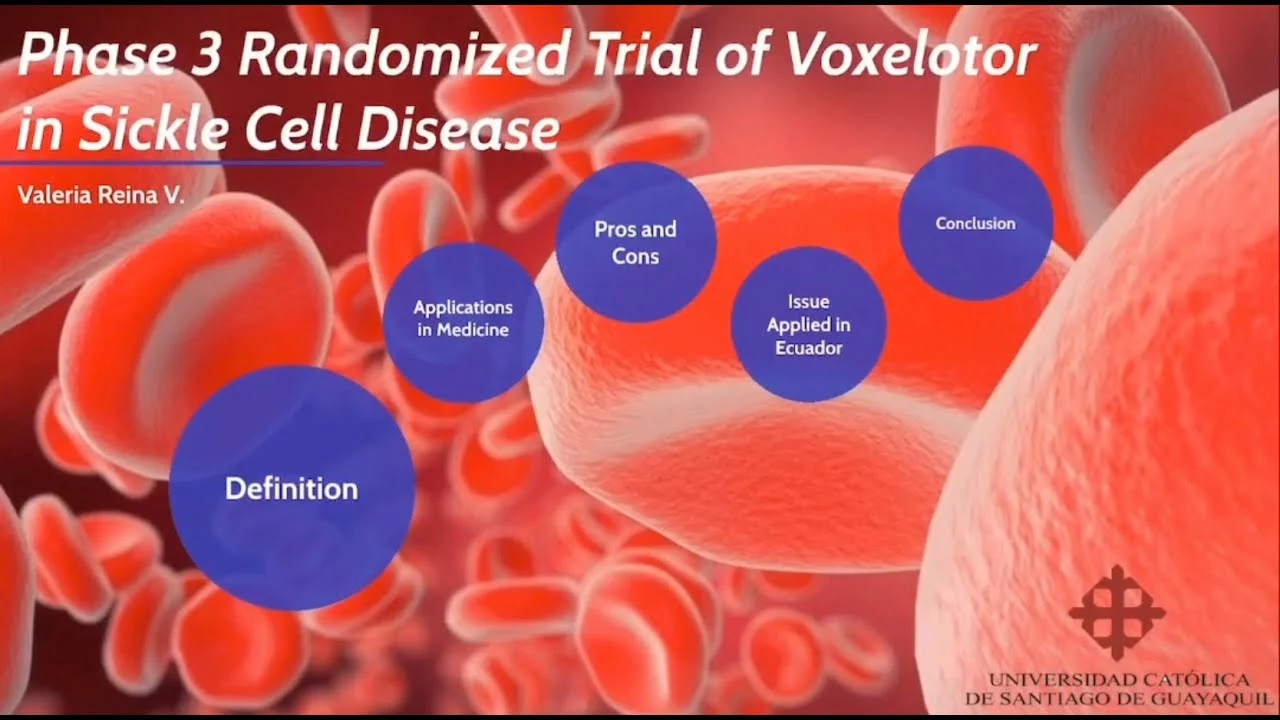Understanding Sickle Cell Anemia
Sickle cell anemia is a genetic blood disorder that affects millions of people worldwide. It is characterized by the production of abnormal, sickle-shaped red blood cells, which can block blood flow and ultimately lead to various complications, including pain, organ damage, and increased risk of infections. As a blogger and an advocate for the sickle cell community, I believe it is crucial for us to raise awareness about this condition and promote better understanding among the general public, medical professionals, and policymakers. In this article, I will discuss the importance of advocacy in the sickle cell anemia community and how you can get involved.
Breaking the Stigma Surrounding Sickle Cell Anemia
Unfortunately, there is a significant amount of stigma associated with sickle cell anemia, which can lead to feelings of isolation and discrimination for those affected by the condition. Many people may not understand the severity of the disease and its impact on daily life, which can lead to misconceptions and unfair treatment. As advocates, it is our responsibility to break down these barriers and work towards a more inclusive society for people living with sickle cell anemia. By sharing personal stories, debunking myths, and educating others, we can help change public perceptions and foster a more compassionate environment for those affected by this condition.
Raising Awareness for Early Diagnosis and Treatment
Early diagnosis and treatment are critical for managing sickle cell anemia and preventing complications. Unfortunately, many people may not have access to proper testing and care, particularly in low-income and underserved communities. Advocacy plays a vital role in raising awareness about the importance of early diagnosis and treatment, as well as pushing for better access to healthcare services for those living with sickle cell anemia. By working with healthcare providers, community organizations, and policymakers, advocates can help ensure that every person affected by this condition receives the care they need to live a healthy, fulfilling life.
Advocating for Better Access to Healthcare Services
For many people living with sickle cell anemia, access to healthcare services can be a significant challenge. This may be due to geographic limitations, financial constraints, or a lack of healthcare providers specializing in sickle cell care. As advocates, we must work to ensure that everyone affected by this condition has access to the resources and services they need to manage their health effectively. This may involve lobbying for the expansion of sickle cell clinics, advocating for better insurance coverage for treatments and medications, or promoting telemedicine to reach patients in remote areas.
Supporting Research and Innovation
While there has been significant progress in the understanding and management of sickle cell anemia, there is still much work to be done. As advocates, we play a crucial role in supporting ongoing research and innovation in the field of sickle cell disease. This may involve fundraising for research initiatives, promoting awareness of clinical trials, or partnering with academic institutions and biotechnology companies to advance the development of new treatments and therapies. By supporting research efforts, we can help pave the way for a brighter future for those living with sickle cell anemia.
Empowering the Sickle Cell Anemia Community
One of the most important aspects of advocacy is empowering the sickle cell anemia community to take charge of their health and well-being. This involves providing education, resources, and support to help individuals navigate the challenges of living with this condition. As advocates, we can help foster a sense of community and belonging, enabling people with sickle cell anemia to connect with others who share their experiences and understand their struggles. By working together, we can create a powerful network of support and solidarity that can make a real difference in the lives of those affected by sickle cell anemia.
Getting Involved in Sickle Cell Anemia Advocacy
If you are passionate about making a difference in the lives of those living with sickle cell anemia, there are many ways you can get involved in advocacy efforts. This may include joining a local or national sickle cell organization, participating in awareness campaigns, or sharing your story to help educate others about the realities of living with this condition. By working together, we can bring about meaningful change and improve the quality of life for people with sickle cell anemia and their families.





Advocacy thrives when we channel our energy into concrete action. Every story shared, every fundraiser organized, and every meeting with a legislator builds a stronger safety net for those living with sickle cell. By educating our circles and demanding equitable healthcare, we turn awareness into policy change. Let’s keep the momentum going and lift each other up-together we can move the needle.
History teaches us that persistent, culturally aware advocacy reshapes public perception. Communities that weave their narratives into the broader social fabric often see lasting legislative impact. When we honor the diverse experiences within the sickle‑cell community, we amplify voices that were once silenced. This collective wisdom becomes a catalyst for systemic reform.
While the fervor for advocacy is commendable, one must question whether current initiatives truly address structural inequities or merely serve as superficial gestures. Many programs, though well‑intentioned, lack rigorous evaluation and often sideline the very populations they aim to help. A more methodical approach, grounded in data and long‑term sustainability, is essential for genuine progress.
Indeed, a systematic framework is indispensable. 📚 By integrating culturally sensitive curricula and fostering mentorship pipelines, we empower individuals beyond short‑term relief. 🤝 Moreover, aligning advocacy with measurable health outcomes ensures accountability and enduring benefit for the community.
Sure, because the government loves funding niche charities. 😏
i guess all the hype isnt really helpin the real ppl lol 😂
Nelson makes a solid point-energy alone won’t solve the access gap, but coordinated community outreach can. Let’s set up local workshops where families learn how to navigate insurance claims and connect with specialist clinics. Those practical steps make a real difference.
Advocacy in the sickle‑cell community is not merely a rallying cry; it is a multifaceted strategy that intertwines education, policy, research, and personal empowerment. First, public awareness campaigns demystify the disease, breaking down stigmas that have persisted for generations. Second, early‑diagnosis initiatives, such as newborn screening programs, are essential because they enable timely intervention and reduce severe complications. Third, access to comprehensive healthcare-spanning primary care, hematology specialists, and mental‑health services-must be universally available, regardless of geographic or socioeconomic barriers. Fourth, supporting robust research pipelines accelerates the development of innovative therapies, including gene‑editing technologies and novel pharmacologic agents. Fifth, community‑driven mentorship networks provide emotional support and practical guidance, fostering resilience among patients and families. Sixth, advocacy groups must engage legislators to secure funding for sickle‑cell clinics, insurance coverage for disease‑modifying treatments, and policies that protect patients from discrimination. Seventh, telemedicine platforms can bridge the gap for those in remote areas, ensuring continuity of care. Eighth, partnership between academic institutions and biotech firms can translate laboratory discoveries into real‑world applications more efficiently. Ninth, transparent data collection on health outcomes allows stakeholders to assess the impact of interventions and refine strategies accordingly. Tenth, culturally resonant storytelling amplifies voices that are often unheard, creating a narrative that motivates societal change. Eleventh, empowering patients to become self‑advocates equips them with the knowledge to make informed decisions about their health. Twelfth, collaborations with global health organizations expand resource sharing and best‑practice models across borders. Finally, sustained financial support through fundraising, grants, and public‑private partnerships ensures that these initiatives remain viable over the long term. By weaving these elements together, advocacy becomes a powerful engine driving improved quality of life and longer, healthier futures for individuals living with sickle‑cell disease.
yeah, great plan but who’s payin for all that? its like a wish list not a real roadmap. lol
Ah, the lofty visions of utopia! One can almost hear the echo of ivory‑tower philosophers chanting for change while reality drips politely through the cracks. Yet, if we dare to imagine a world where every child with sickle cell is cradled by a flawless healthcare apparatus, perhaps the drama of our present struggle becomes the prelude to a grander symphony of triumph.
All of this sounds awesome. If anyone needs help getting started, just let me know-I’m happy to share resources and connect people.
thanks for the offer i’ll def hit you up when i need some tips :)